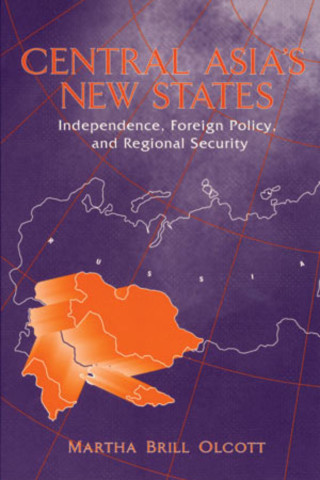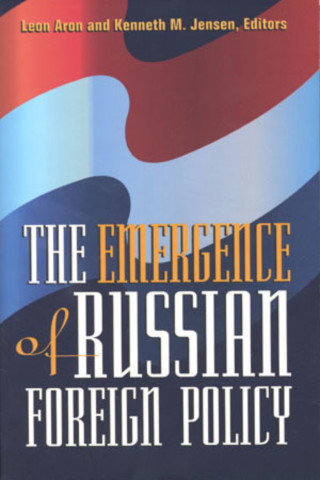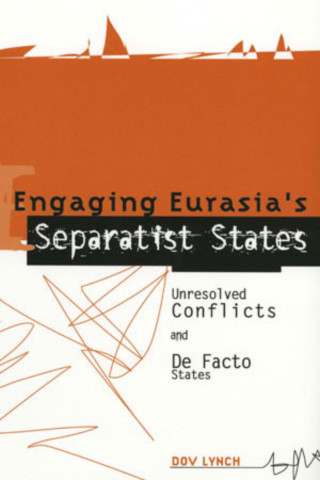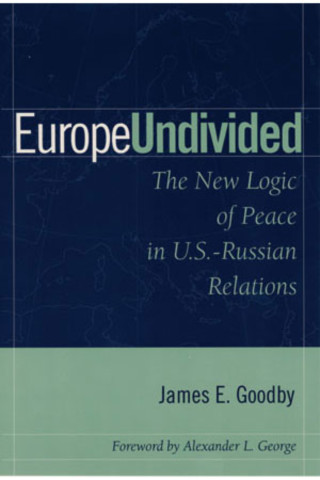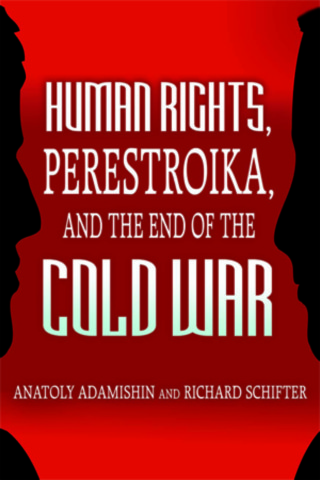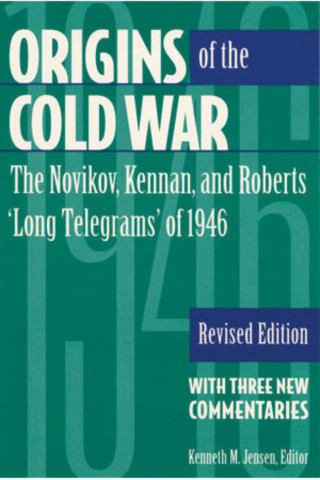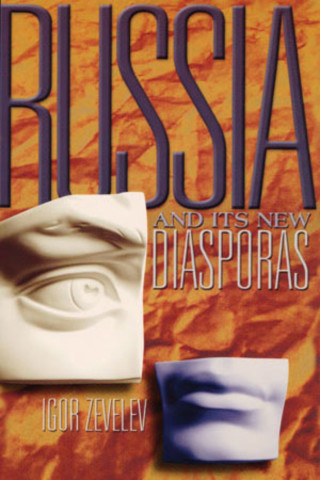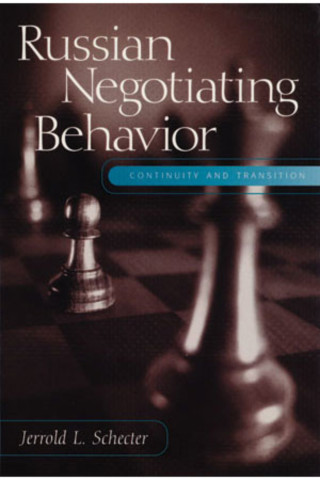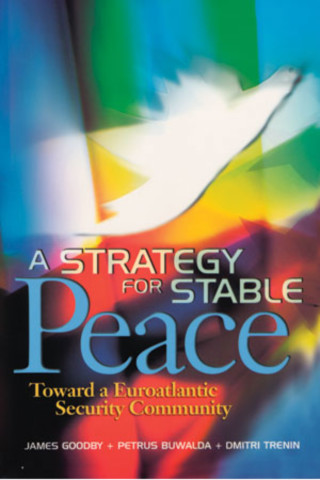Catalog
- Sort by
Recipient of "Outstanding Academic Book" Award—CHOICE, 2006
With breathtaking speed, the republics of the former Soviet Union have been transformed into independent states expected to perform their own foreign policy functions. Yet many of these republics have little experience in foreign relations, and their appearance on the international stage may upset power balances in regions that are already unstable.
The new Central Asian states in particular are becoming of increasing interest to the West, because of their enormous resource base, especially oil and gas; their large, mostly Muslim, population; and their relative proximity to the volatile Middle East. But there is a dearth of informed analysis on this much misunderstood region.
This timely volume helps fill that gap by closely examining the developing foreign policies of the Central Asia republics—especially Kazakhstan, Kyrgyzstan, and Uzbekistan. It describes in detail how they handled their transitions to statehood and draws important conclusions about the implications for regional and international peace and security.
The emergence of a new Russia--a post-communist European state with a vast store of nuclear arms--raises many complex questions. What kind of foreign and defense policies will Russian pursue into the 21st century? What will be the impact of the loss of the former empire? And what are the implications for western policymakers?
This volume attempts to answer those questions by examining Russia's relations with the Near Abroad (the newly independent states on its borders), the Commonwealth of Independent States (CIS), and its Pacific neighbors, as well as its peacekeeping role in the former Soviet states. In addition, the book explores the historic patterns of Russian foreign policy (issues of internationalism, accommodation, "Soviet Russia"), the Soviet legacy, institutional mechanisms for policymaking, and the effects of domestic policy.
The Emergence of Russian Foreign Policy concludes with a discussion of western perceptions of Russian's evolving national security doctrine and the future of Russian-American strategic relations.
In the wake of the dissolution of the Soviet Union, secessionist forces carved four de facto states from parts of Moldova, Georgia, and Azerbaijan. Ten years on, those states are mired in uncertainty. Beset by internal problems, fearful of a return to the violence that spawned them, and isolated and unrecognized internationally, they survive behind cease–fire lines that have temporarily frozen but not resolved their conflicts with the metropolitan powers. In this, the first in–depth comparative analysis of these self–proclaimed republics, Dov Lynch examines the logic that maintains this uneasy existence and explores ways out of their volatile predicament.
Drawing on extensive travel within Eurasia and remarkable access to leading figures in the secessionist struggles, Lynch spotlights the political, military, and economic dynamics—both internal and external—that drive the existence of South Ossetia, Abkhazia, Transnistria, and Nagorno-Karabakh. He also evaluates a range of options for resolving the status of the de facto states before violence returns, and proposes a coordinated approach, spearheaded by the European Union, that balances de facto and de jure independence and sovereignty.
Slim but packed with information and insight, this volume also offers instructive lessons about the dynamics of intrastate and ethnic conflict and the merits of autonomy and power sharing in places as diverse as Kosovo, Northern Cyprus, and Chechnya.
Can Russia and the United States really move beyond their bitter Cold War rivalry to a genuinely cooperative relationship?
A diplomatic memoir unlike any other, this volume takes the reader behind the scenes on both sides of the Cold War as two men form an unlikely partnership to help transform Soviet-American relations.
In September 1946, the Soviet ambassador to the United States, Nikolai Novikov, sent a 19-page cable to Foreign Minister Molotov describing the likely direction of U.S. foreign policy in the postwar period. Recently discovered in the Soviet archives, the Novikov telegram parallels the famous "Long Telegram" of U.S. diplomat George Kennan.
Published here for the first time in English, Novikov's telegram is presented alongside Kennan's cable and a similar telegram by British diplomat Frank Roberts.
On the morning after the Soviet Union’s collapse, millions of ethnic Russians living on the fringes of the former Russian Republic suddenly awakened to find themselves in foreign countries—newly independent non-Russian successor states that most Russians now refer to as the "near abroad."
Igor Zevelev here examines the political significance of these ethnic Russian "diaspora" communities and their implications for the future of Eurasian security. The "Russian Question" centers on Russia’s identity and its territorial reach: Is Russia confined to its post-Soviet territorial border, or do Russians in the "near abroad" lend support to the nationalist proposition that Russia extends beyond this "artificial" demarcation?
As Russian politicians and intellectuals reassess the "Russian Question" in the post-Soviet era, these ethnic Russian communities—mostly in Ukraine, Belarus, and northern Kazakhstan—serve not only as a significant factor in Russia’s quest for a national identity, but also as a political conduit for Russian influence. In addition to his thoughtful and insightful exploration of nationalism and national identity throughout Russia’s history, Zevelev skillfully dissects the multifaceted nature of the Russian Federation’s official policies toward these ethnic Russian communities.
Whether bargaining for strategic arms reductions, rights to drill Siberian oil fields, or an apartment in Moscow, Americans are faced across the table by a distinct Russian negotiating style. What are its chief characteristics, and how can U.S. diplomats and businesspeople best deal with it as they pursue their own objectives?
Jerrold Schecter explores these questions with a wealth of personal experience as a former government official, journalist, and corporate executive. His insights, deepened by his working knowledge of the Russian language, also draw on the testimony of U.S. and former Soviet diplomats and negotiators. As he examines the historical and cultural underpinnings of contemporary Russian negotiating behavior, Schecter finds that the Bolshevik legacy remains largely intact despite the Soviet Union's demise. A step-by-step examination of the negotiating process, based on unique inside accounts from retired Soviet officials, exposes the areas of greatest continuity in Russian interests and style, as well as areas of change.
Russian Negotiating Behavior also identifies counterstrategies that western negotiators can use to protect their interests, and it outlines the requirements for doing business in Russia's nascent market economy.
Soviet-American competition in the past has all too often exacerbated regional conflicts rather than helped resolve them. Since the extraordinary events of 1989, however, the Soviet Union no longer seems willing to support military intervention in the Third World. Instead, Washington and Moscow have worked together to try to resolve several conflicts, making more progress in the past two years than in the preceding four decades.
Yet many bloody conflicts continue, and other ancient enmities threaten to erupt into violence. The resolution of Third World conflicts is proving to be difficult even in an era of more cooperative Soviet-American relations.
This volume brings together essays by experts in government, journalism, and academia to examine the opportunities and obstacles the United States and the USSR face in attempting to resolve regional conflicts in Afghanistan, Cambodia, the Middle East, Southern Africa, the Horn of Africa, and Asia and the Pacific.
Although each situation is different, some lessons and negotiation techniques are transferable. The concluding chapter summarizes those lessons and suggests ways to enhance Soviet-American cooperation in the future.
"The United States, Russia, and all the nations of Europe could eliminate war as a means of settling disputes among themselves. It will not be easy but it is within their reach.” Thus begins this bold and yet pragmatic argument for creating a security community that runs from Vancouver to Vladivostock.
In A Strategy for Stable Peace, three eminent diplomats and scholars from Europe and the United States urge us to make the new decade a turning point in history. In place of the wars and near-wars that have plagued Euroatlantic relations over centuries, close and enduring cooperation can gradually be built on the basis of shared interests and common values.
After first outlining the concept of stable peace, the volume describes the current political, economic, and security climates within Russia, the European Union, and the United States, and then assesses various models before recommending a strategy for achieving a stable peace. Drawing on their extensive experience, the authors recommend a series of concrete, practicable policies, both long- and near-term, that the leaders of their nations can adopt.

